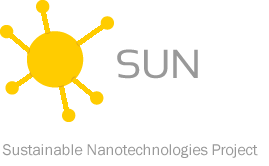Dr Ceyda Oksel is a Post-doctoral Research Associate in the Department of Medicine at Imperial College London, where she is also acting as a postdoc representative. The main focus of her research is on implementing statistical machine learning models to understand the progression of asthma and allergic diseases from childhood to adulthood. The goal of her work is to develop innovative computational machine learning methods that can identify novel subtypes of childhood asthma, enabling investigation of subtype-specific environmental and genetic associates, discovery of distinct pathophysiological mechanisms and ultimately, personalisation of asthma treatment that targets specific type of wheeze.
Before joining Imperial, Dr Oksel was a Research Fellow at University of Leeds (2016-2017), where she completed her EU Commission-funded PhD (2012-2016) after obtaining her MSc degree (2011-2012) in Chemical Engineering. Her PhD work was part of three EU-funded large projects, namely, MARINA, SUN and NanoReg, each involving over 20 EU partners. The focus of her research as a PhD researcher was multivariate statistical studies into the human and environmental toxicology effects of nanomaterials. Her research has led to powerful new computational techniques for investigating the toxicological risks of engineered nanomaterials in the challenging new area of nanotechnology, and a large number of scientific publications, citations and lectures at international conferences. She has lectured on these new computational techniques at high-level international postgraduate training schools in Europe. Her PhD thesis and viva examination have been graded outstanding. The work has potential for significant societal impact for the nanotechnology industry and regulators developing cost-effective regulation.
During the course of her PhD studies, she has supervised three MSc students, acted as a teaching assisstant for several undergraduate courses (Process Optimisation and Control, Process Modelling and Thermodynamics), delivered 20+ invited talks at international conferences and workshops, played an active role in several scientific networking projects (EU COST Action MODENA), served as a reviewer in international journals and carried out consultancy projects for industrial clients (e.g. BP).
Dr Oksel’s research interests, in broad terms, concern the use of statistical and machine learning methods across a wide range of different areas to extract useful knowledge from large data and to improve the quality of decision-making process, especially in chemical, pharmaceutical and life science applications. Her research interests extend beyond data mining and include process analytical technologies, process control and optimisation, process and material characterisation, crystallisation, computational chemistry, predictive toxicology, risk assessment and management, and safe-by-design strategies.
She is currently a collaborator on the Study Team for Early Life Asthma Research (STELAR), a multi-disciplinary/multi institutional consortium of clinicians, statisticians, computer scientists and geneticists.
PhD Thesis Title: NanoSAR: In Silico Modelling of Nanomaterial Toxicity
Key Words: nanomaterial toxicity, in silico toxicology, computational toxicology
PhD Thesis Abstract: The number of engineered nanomaterials (ENMs) being exploited commercially is growing rapidly, due to the novel properties of ENMs. Clearly, it is important to understand and ameliorate any risks to health or the environment posed by the presence of ENMs. However, there still exists a critical gap in the literature on the (eco)toxicological properties of ENMs and the particular characteristics that influence their toxic effects. Given their increasing industrial and technological use, it is important to assess their potential health and environmental impacts in a time and cost effective manner. One strategy to alleviate the problem of a large number and variety of ENMs is through the development of data-driven models that decode the relationships between the biological activities of ENMs and their physicochemical characteristics. Although such structure-activity relationship (SAR) methods have proven to be effective in predicting the toxicity of substances in bulk form, their practical application to ENMs requires more research and further development. This study aimed to address this research need by investigating the application of data-driven toxicity modelling approaches (e.g. SAR) that are beneficial over animal testing from a cost, time and ethical perspective to ENMs. A large amount of data on ENM toxicity and properties was collected and analysed using quantitative methods to explore and explain the relationship between ENM properties and their toxic outcomes, as a part of this study. More specifically, multi-dimensional data visualisation techniques including heat maps combined with hierarchical clustering and parallel co-ordinate plots, were used for data exploration purposes while classification and regression based modelling tools, a genetic algorithm based decision tree construction algorithm and partial least squares, were successfully applied to explain and predict ENMs’ toxicity based on physicochemical characteristics. As a next step, the implementation of risk reduction measures for risks that are outside the range of tolerable limits was investigated. Overall, the results showed that computational methods hold considerable promise in their ability to identify and model the relationship between physicochemical properties and biological effects of ENMs, to make it possible to reach a decision more quickly and hence, to provide practical solutions for the risk assessment problems caused by the diversity of ENMs.
Open Access: http://etheses.whiterose.ac.uk/13861/1/Ceyda_Oksel_Thesis.pdf
